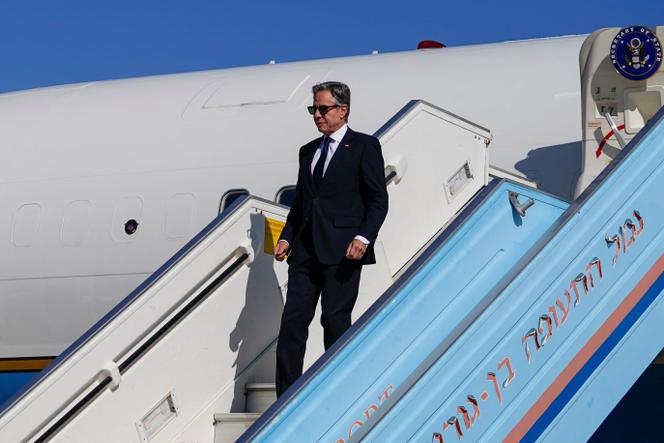


US Secretary of State Antony Blinken urged Israeli Prime Minister Benjamin Netanyahu, on Tuesday, October 22, to seize on the killing of Hamas's leader to work towards a ceasefire in Gaza, also calling for more aid to reach the war-battered territory.
Blinken is on his 11th trip to the Middle East since Hamas's attack on Israel more than a year ago triggered the Gaza war, and his first since Israel's conflict with Iran-backed Hezbollah escalated late last month.
During his meeting with Netanyahu in Jerusalem, Blinken "underscored the need to capitalise" on the Israeli military's killing of Hamas leader Yahya Sinwar last week, US State Department spokesman Matthew Miller said. This would be done by "securing the release of all hostages and ending the conflict in Gaza in a way that provides lasting security for Israelis and Palestinians alike," he added.
Netanyahu told Blinken that Sinwar's death "could have a positive impact on the return of the hostages" seized by Hamas during the October 7 attack last year, according to a statement from the Israeli leader's office.
Blinken also pressed for more aid to be allowed into the besieged Palestinian territory as concerns rise for tens of thousands of civilians trapped by fighting in the hard-to-reach north. Washington has warned it may suspend some of its military assistance if Israel does not quickly improve humanitarian access to the area.
Previous US efforts to end the Gaza war and contain the regional fallout have failed, as did a bid spearheaded by President Joe Biden and his French counterpart Emmanuel Macron to secure a temporary ceasefire in Lebanon.
As Israel weighs its response to Iran's missile attack on October 1, Netanyahu's office said that "the Iranian threat and the need for both countries to unite forces against it were raised" during the meeting with Blinken.
Blinken also again called for a "diplomatic resolution" in Lebanon and compliance with a UN resolution that ended an Israel-Hezbollah war in 2006. Under Security Council Resolution 1701, Hezbollah should have withdrawn from areas in south Lebanon near the Israeli border, leaving only the country's military and UN peacekeepers deployed there.
Meanwhile, Hezbollah said it launched attack drones at an Israeli military base south of the coastal city of Haifa on Tuesday, with the group also saying it struck seven tanks at the border.
